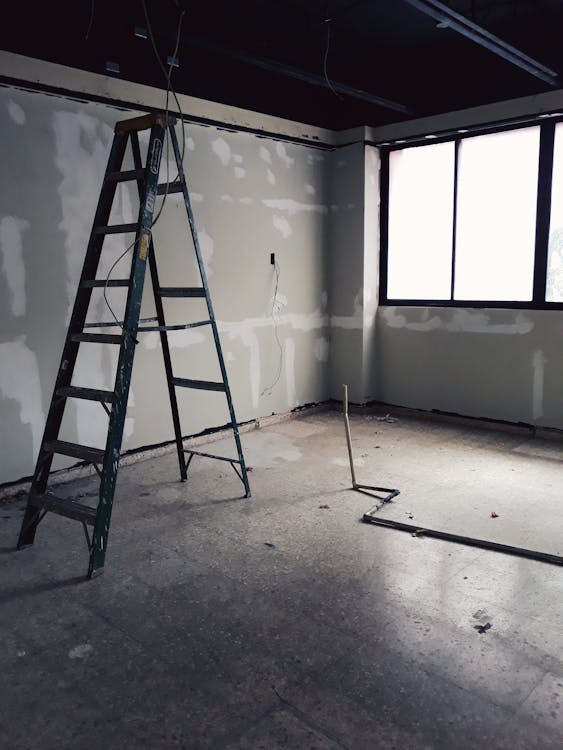By Mary Ann Boateng for REALTOR.ca
Like most other types of insurance plans, home, condo, and/or tenant insurance can help you feel secure knowing you have safety nets in case of unforeseen circumstances. Before closing on a mortgage for the purchase of a home or condo, most lenders require proof of insurance—and the same can be true when you’re renting. Landlords may require that tenants provide proof of tenant insurance before going ahead with a lease.
Condo and tenant insurance are similar in that you’re only insuring the contents of your space, such as the furnishings and appliances. With home insurance, it covers the entire home from the contents inside to the physical property and land outside.
Although not required by the government the same way car insurance is, home and tenant insurance can protect you from having to fork up a lot of money if something happens to (or on) your property or your personal belongings.

What are some of the more common home and tenant insurance clauses?
Home insurance is customizable to your needs. You can get coverage for the structure of a home, personal belongings, as well as liability and additional living expenses.
Daniel Goldhar, an insurance broker with Canadian Insurance Brokers Inc, says one of the most common home insurance clauses is coverage for the complete replacement of a property if a home is destroyed by disasters listed in the policy, such as a fire. Goldhar says in terms of the physical structure, it’s important to “get as much comprehensive coverage as possible to ensure the complete rebuild of your home.”
He also says it’s important to get full water damage protection as well. Typical home insurance may not cover water damage from an outside source like flooding, but covers water damage from a heating or plumbing system issue. Be sure to get the specifics on what’s included in your coverage—certain policies may not include sump pumps. Purchasing additional coverage can help to protect your home against flooding from natural disasters.
When looking at homes, be sure to ask your REALTOR® about high-risk flooding areas, as homes in high-risk areas may be denied coverage or incur a higher premium.
Common home insurance coverage also includes what’s inside your home, like clothes, furniture, valuables and appliances. In some instances, this can also include items stored off site. Some companies may limit the amount you can get for jewelry, art and collectibles, so be sure to read the fine print and get additional coverage if necessary. Goldhar says storing your valuables in a safety deposit box can help reduce your insurance costs for high value items.
When it comes to tenant insurance, you can get contents, personal liability, and additional living expenses coverage. Your landlord will have insurance that covers the physical structure of the property, like the walls and innerworkings.

Liability, which is also offered in home insurance plans, protects you in case a visitor is hurt in your home or on your property. This includes personal liability claims such as someone slipping and falling either inside or outside of your home, or damage caused by falling trees. Liability insurance can also cover pet damage—as long as you’ve let your insurance company know you have pets in the home. If you don’t inform your insurance company of your pets, and something ends up happening—whether it’s biting someone or causing damage to your property—you could be denied your claim.
Then there are additional living expenses (ALE), which cover the cost of accommodation if you have to leave your house or apartment because of a mandatory evacuation. It doesn’t cover leaving your home due to inconvenience of repairs if the space is still livable. ALE covers costs outside of the “normal” costs of your home.
For example, if your rent is $1,000 and you need to move to a place that will cost you $1,500 a month, your insurance will reimburse you for the additional $500. ALE also doesn’t cover the cost of the food you cook in your temporary living space, but if you ended up somewhere you couldn’t cook food (such as a hotel room without a kitchen), ALE would cover meals and restaurant bills. It does not cover mortgage payments.

How does home insurance work with renovations?
If you’re doing renovations in the home you own, you need to let your insurance company know what’s happening, as there’s a different type of insurance for renovations depending on if the home is vacant or not.
Goldhar says it’s important for the insurance company to know if the home will be vacant because “if anything bad happens, there is no one there to mitigate any issues like a fire.”
Insurers may apply a surcharge during a renovation period. Goldhar says if you’re buying and completing renovations right away, many of the larger companies may be wary of insuring the home because it’s considered risky. This means you may have to go through an insurance broker in order to access specialty insurance companies where the coverage may be more expensive.
When we spoke to Matthew Johnson, customer care manager with Sonnet Insurance, he said any changes that would impact the cost or the likelihood of a claim would typically impact your insurance rates.
This includes renovations such as:
- changes to square footage
- updates to your roofing
- changes or updates to the plumbing or wiring
- the addition of a fireplace
- building a new deck or outdoor feature like a pool or
- adding a home office or workshop for your own business, which could result in needing additional liability insurance.

What other types of coverage can you add to your home insurance?
In addition to the basics, there are further coverages and endorsements available when choosing home insurance—depending on the company, your location, and specific situation, of course.
- Food spoilage: anyone who has lived through a power outage that lasts longer than a few hours knows the pain of tossing food that’s thawed. Adding a food spoilage endorsement covers the cost of spoiled food, which can be a big help, especially for people who have multiple freezers. For renters, most tenant insurance policies likely cover food spoilage as the food is considered contents of your apartment.
- Credit and debit card forgery: if your credit or debit card is forged, this endorsement can help offset losses—financial or otherwise. There are also endorsements specifically for identity theft, identity fraud, and cybercrimes.
- Sewer back-up: severe weather has increased the likelihood of sewer line back-ups, which can push water into your basement and lead to potential problems such as extensive damage and the development of mould. There is a separate endorsement for overland water, which covers floods from rivers, lakes, and other bodies of water due to heavy rainfall, melting snow and rising rivers.
- Lock replacement or locksmith: if you’ve been the victim of a burglary, this coverage will take care of costs related to repairing or replacing your locks and/or stolen keys.
- Home-based business: there could be options to help protect your home-based business in the case of equipment damage, interruptions, or liability claims. Talk to your insurance provider to see what options may be available to you.
- Mass evacuation: those who live in areas that are susceptible to weather emergencies (floods, wildfires, hurricanes, etc.) should look into mass evacuation coverage, which covers extra expenses like food and lodging in the event you and your family are displaced.

Using an insurance broker vs. searching on your own
Using an insurance broker when seeking out insurance may help you to get personalized coverage with someone you can get to know personally. Like mortgage brokers who are the middle person between buyers and lenders, insurance brokers are the middle person between buyers and insurers, and they have access to mid and smaller insurers that don’t deal directly with the public.
Brokers can help you get covered when you’re denied by standard companies, which might make this route better for you. Overall, whether direct or a company, the insurance industry is heavily regulated, and these professionals are mandated to help provide you with the best information for you to make a purchase. Your REALTOR® will have a list of professionals they trust, including insurance agents, who can help you find the right policy for your situation.
Bundling is also one way to help you save on home insurance, if you have an auto or life insurance policy you could save some cash by bundling it all together.
Home and tenant insurance helps you to protect what’s important to you and provides peace of mind. Understanding what’s covered by can help save you money and make the most of your policy.
As you can tell by this informative article, it’s really important to have the right type and amount of insurance, whether you’re a homeowner, owner/investor or tenant. If you have any questions, and would like to know the difference between house insurance, mortgage insurance, tenants insurance, etc, you can reach me by calling 905-683-7800.
Mary Ann Boateng's article was initially published on REALTOR.ca. You can find it by clicking here.
| REALTOR.ca is the most popular and most trusted real estate website in Canada. Owned and operated by the Canadian Real Estate Association (CREA), REALTOR.ca provides up-to-date and reliable information that makes finding your dream property easy and enjoyable. REALTOR.ca is popular with sellers, buyers, and renters and is accessible online and on mobile devices. |
|
|
About the Author Mary Ann Boateng is a Toronto-based senior copywriter with experience working in fast-paced advertising and marketing environments. When she’s not working, Mary Ann loves trying new recipes, attending concerts and finding new hiking spots. |
Thanks for reading today’s BLOG!!!

Brian Kondo
Sales Representative / Team Leader
The Brian Kondo Real Estate Team
Re/Max Hallmark First Group Realty Ltd.
905-683-7800 office
905-426-7484 direct
brian@briankondo.com
www.BrianKondo.com
www.BrianKondoTeam.com
Homesellers - Find Out What Homes in Your Neighbourhood are Selling For! You can receive a FREE computerized printout of ALL recent Home Sales and Current Listings in your neighbourhood. Click here!
Best Buy Hotlist - You can receive a FREE list of the 10 Best Buys in your
specific price range sent to you at No COST or OBLIGATION.
Click here!
Your Home Sold Guaranteed or I'll Buy It!* No Gimmicks! For a Free Special Report that Details my Guaranteed Sale Program, visit: www.BriansGuaranteedSaleProgram.com.
Remember, your referrals change lives! We donate a portion of our income on every home sale to a great worthy cause like SickKids Hospital. To find out more visit: www.ReferForSickKids.com.
If you or anyone you know is considering making a move in the next little while, give me a call or pass on my number ... 905-683-7800 (Office) or 905-426-7484 (Direct).
#HomesInsurances #HomeInsurance #ClauseInsurance #TenantInsurance #HomeSecurity #SafeAndSecure #InsuringTheProperty #PropertyInsurance


